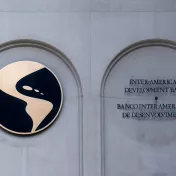At the UN Climate Change Conference in Marrakech in 2001 (COP7), the international community agreed to establish a climate adaptation fund, which was then launched in 2007. The Adaptation Fund celebrated its tenth anniversary at the 2017 Climate Change Conference (COP23), which was held in Bonn under the Fijian presidency – a good time to reflect on past successes and future developments.
The distinguishing feature of the Adaptation Fund is that it provides funding for small, concrete and urgent projects in developing countries. In addition to its clear focus on vulnerable populations, it offers countries in the Global South direct access to finance. In concrete terms, this means that national institutions in developing countries can apply for funding directly without having to go through an international implementing entity. The Adaptation Fund has played a key role in realizing direct access to finance. With its 27 national implementing entities, it makes a major contribution to strengthening institutions in the Global South. It has also been a pioneer with regard to transparency and opportunities for civil society participation. Since 2010, the fund has provided around $462 million for specific activities to enhance resilience, benefiting more than five million people in 73 countries.
The Adaptation Fund was originally funded by a levy on international emissions trading in the Clean Development Mechanism. However, the trading volume and certificate price have fallen sharply in recent years, leading to the collapse of this innovative financing method. This has left the fund dependent on pledges from donor countries for the time being. With around $224 million, Germany has given by far the most money to the fund to date (approximately half of the total financial pledges). With the aim of making the Adaptation Fund an integral part of the climate finance architecture under the Paris Agreement, the German environment minister pledged an additional €50 million (around $58 million) to the fund on the very first day of COP23.
In recent years, the Adaptation Fund has demonstrated its great significance and as yet indispensable role in helping developing countries adapt to the consequences of climate change. Many industrialized countries recognize this added value and, by furnishing the necessary financial resources, have ensured the fund’s ability to continue to play this crucial role in the future – at least until a new, functional and innovative financing mechanism has been put in place.
The 2017 Climate Change Conference succeeded in setting the course for the ten-year success story of the Adaptation Fund to continue. With around $93 million in pledges from Germany, Sweden, Italy, Wallonia and Ireland, the Adaptation Fund managed to exceed its annual resource mobilization target at COP23. The fund also came one step closer to the goal of formally serving the Paris Agreement in future during the Bonn conference. The original wording that the Adaptation Fund “could serve the Paris Agreement” became a “should” in Marrakech in 2016, and a firm “shall serve the Paris Agreement” in Bonn. In line with this decision, further issues pertaining to the structure of the fund’s administrative and decision-making body, institutional arrangements, environmental and social standards and operational modalities still need to be settled. A final resolution on the future of the Adaptation Fund must therefore be reached in 2018 at the Climate Change Conference in Katowice. Germany could and should play a constructive role there.
This article was first published at greenclimatefinance at the 7th of December 2017.





